Your search “Keep%20the%20Death%20Penalty%20Abolished%20fin%20the%20Philippfines%20%20%20%20%20%20%20%20%20%20/page/www.humanrights.asia/resources/hrreport/2011/AHRC-SPR-008-2011/at_download/file ”
Document(s)
Report of the Special Rapporteur on the situation of human rights in the Islamic Republic of Iran
By Human Rights Council, on 1 January 2012
2012
Working with...
More details See the document
The present report, the first to be submitted to the Human Rights Council, is submitted pursuant to Council resolution 16/9 and covers the human rights developments since the commencement of the mandate of the Special Rapporteur on 1 August 2011.
- Document type Working with...
- Themes list Country/Regional profiles,
Document(s)
Muzzling critical voices: Politicized trials before Saudi Arabia’s Specialized Criminal Court
By Amnesty International, on 8 September 2020
2020
NGO report
Saudi Arabia
aresarfrMore details See the document
Despite the Saudi Arabian authorities’ rhetoric about reforms, they have unleashed an intense crackdown on citizens promoting change in the last few years. One of the instruments of that repression has been the Specialized Criminal Court (SCC), which was set up in 2008 to try individuals accused of terror-related crimes. Amnesty International has documented the cases of 95 individuals who were tried before the SCC between 2011 and 2019. It has concluded that the SCC’s judges have presided over grossly unfair trials, handing down prison sentences of up to 30 years and numerous death sentences, in an effort to silence dissent.
- Document type NGO report
- Countries list Saudi Arabia
- Themes list Country/Regional profiles, Terrorism,
- Available languages AR Muzzling critical voicesArabia Saudí: Silenciar las voces críticas: Juicios politizados ante el Tribunal Penal Especializado de Arabia Saudí - Resumen ejecutivo y conclusionesتكميم الأفواه المعارِضة: محاكمات مسيّسة أمام المحكمة الجزائية المتخصصة في السعوديةArabie Saoudite: Reduire les voix critiques au silence: Des proces politises devant le Tribunal penal special en Arabie Saoudite
Document(s)
Summary of Hands Off Cain 2014 Report
By HANDS OFF CAIN, on 1 January 2014
2014
NGO report
More details See the document
The worldwide trend towards abolition, underway for more than fifteen years, was again confirmed in 2013 and the first six months of 2014.There are currently 161 countries and territories that, to different extents, have decided to renounce the death penalty. Of these: 100 are totally abolitionist; 7 are abolitionist for ordinary crimes; 6 have a moratorium on executions in place and 48 are de facto abolitionist (i.e. Countries that have not carried out any executions for at least 10 years or countries which have binding obligations not to use the death penalty).Countries retaining the death penalty worldwide declined to 37 (as of 30 June 2014), compared to 40 in 2012. Retentionist countries have gradually declined over the last few years: there were 43 in 2011, 42 in 2010, 45 in 2009, 48 in 2008, 49 in 2007, 51 in 2006 and 54 in 2005.
- Document type NGO report
- Themes list Statistics,
Document(s)
Reporting on the death penalty: training resource for journalists
By Penal Reform International, on 1 January 2011
2011
NGO report
More details See the document
The aim of this resource is to build and strengthen the knowledge and raise awareness of journalists on how to report on the death penalty and alternative sanctions. This training resource has been developed in conjunction with PRI’s partner, Inter Press Services (IPS).
- Document type NGO report
- Themes list Public opinion, Networks,
Document(s)
The ‘Mumia Exception’
By Free Mumia Abul Jamal Coalition (NYC), on 1 January 2009
2009
Legal Representation
More details See the document
In 1981, Mumia worked as a cab driver at night to supplement his income. On December 9th he was driving his cab through the red light district of downtown Philadelphia at around 4 a.m. Mumia testifies that he let off a fare and parked near the corner of 13th and Locust Streets. Upon hearing gunshots, he turned and saw his brother, William Cook, staggering in the street. Mumia exited the cab and ran to the scene, where he was shot by a uniformed police officer and fell to the ground, fading in and out of consciousness. Within minutes, police arrived on the scene to find Officer Faulkner and Mumia shot; Faulkner died. Mumia was arrested, savagely beaten, thrown into a paddy wagon and driven to a hospital a few blocks away (suspiciously, it took over 30 minutes to arrive at the hospital). The trial began in 1982 with Judge Sabo (who sent more people to death row than any other judge) presiding. Mumia wished to represent himself and have John Africa as his legal advisor, but before jury selection had finished, this right was revoked and an attorney was forcibly appointed for him. Throughout the trial, Mumia was accused of disrupting court proceedings and was not allowed to attend most of his own trial.
- Document type Legal Representation
- Themes list Networks,
Document(s)
The Politics of the Death Penalty in Countries in Transition
By Routledge / Madoka Futamura, on 1 January 2014
2014
Book
More details See the document
Covering a diverse range of transitional processes in Asia, Africa, Latin America, Europe, and the Middle East, The Politics of the Death Penalty in Countries in Transition offers a broad evaluation of countries whose death penalty policies have rarely been studied. The book would be useful to human rights researchers and international lawyers, in demonstrating how transition and transformation, ‘provide the catalyst for several of interrelated developments of which one is the reduction and elimination of capital punishment’.
- Document type Book
- Themes list International law, Trend Towards Abolition,
Document(s)
Zhao Zuohai: Beaten, Framed and Jailed for a Murder that Never Happened
By Clifford Coonan / The Independent, on 1 January 2010
2010
Legal Representation
More details See the document
The first act took place in 1999, when the dirt-poor farmer from Henan province had a violent argument with a fellow peasant, Zhao Zhenshang. His opponent, no relation despite a shared surname, disappeared into thin air. Later a headless, decomposed corpse was found in a well, and produced as evidence of Zhao Zuohai’s murderous deed. He was tortured, forced to confess and received the inevitable death sentence, before eventually winning a reprieve from the firing squad and having his sentence commuted to a 29-year jail term.
- Document type Legal Representation
- Themes list Networks,
Document(s)
Facts and Figures 2022
By the World Coalition Against the Death Penalty, on 24 June 2022
2022
World Coalition
frMore details Download [ pdf - 241 Ko ]
Find the main facts and figures regarding the death penalty worldwide in 2021 and early 2022.
- Document type World Coalition
- Available languages Faits et chiffres 2022
Document(s)
21st World Day – Facts and Figures 2023
By the World Coalition Against the Death Penalty, on 12 June 2023
2023
Campaigning
World Coalition
frMore details Download [ pdf - 239 Ko ]
Find the main facts and figures regarding the death penalty worldwide in 2022 and early 2023.
- Document type Campaigning / World Coalition
- Available languages 21ème Journée Mondiale - Faits et chiffres 2023
Document(s)
Executed Taiwan airman Chiang Kuo-ching innocent
By Cindy Sui / BBC, on 1 January 2011
2011
Legal Representation
More details See the document
A Taiwanese air force private executed 14 years ago for the rape and murder of a five-year-old girl was innocent after all, a military court has ruled.
- Document type Legal Representation
- Themes list Innocence,
Document(s)
The death penalty in China
By Bin Lu, Hong Liang / Columbia University Press, on 1 January 2015
2015
Arguments against the death penalty
More details See the document
Featuring experts from Europe, Australia, Japan, China, and the United States, this collection of essays follows changes in the theory and policy of China’s death penalty from the Mao era (1949–1979) through the Deng era (1980–1997) up to the present day. Using empirical data, such as capital offender and offense profiles, temporal and regional variations in capital punishment, and the impact of social media on public opinion and reform, contributors relay both the character of China’s death penalty practices and the incremental changes that indicate reform. They then compare the Chinese experience to other countries throughout Asia and the world, showing how change can be implemented even within a non-democratic and rigid political system, but also the dangers of promoting policies that society may not be ready to embrace.
- Document type Arguments against the death penalty
- Themes list Death Penalty, Country/Regional profiles,
Member(s)
Marvi Rural Development Organization
on 15 September 2020
Marvi Rural Development Organization (MRDO) is registered under the Societies Act as a non-profit/non-government organization in 1994 envisioned to address social sufferings of marginalized and underprivileged population segments in northern Sindh, particularly disadvantaged men, women and children. Since its inception, MRDO has designed and implemented over 60 projects of diversified nature for vulnerable, disastrous, and […]
2020
Pakistan
Document(s)
Joint Statement: The death penalty for drug-related offences
By Harm Reduction International, on 1 January 2015
2015
Multimedia content
More details See the document
Joint Statement signed by Amnesty International, Anti Death Penalty Asia Network, Harm Reduction International, International Drug Policy Consortium, Penal Reform International and the World Coalition Against the Death Penalty to highlight to Member States of the Commission on Narcotic Drugs and the preparatory Board of the 2016 UN General Assembly Special Session (UNGASS) on drugs the continued use by some countries of the death penalty for drug-related offences despite clear restrictions set out in international law.
- Document type Multimedia content
- Themes list Drug Offences,
Document(s)
Death Penalty India Report – Volume 2
By Anup Surendranath / National Law University, New Delhi Press, on 8 September 2020
2020
NGO report
India
More details See the document
This project sought to answer questions regarding the socio-economic profile of prisoners sentenced to death in India while looking into the process of death sentencing in itself. By means of meaningful statistics and case studies, this report manages to enlighten some aspects of the death penalty in India which are generally not fully explored and triggers a sociological discussion on these thorny issues that goes beyond the legal analysis of Supreme Court judgments.Chapters:6) Experience in custody7) Trial and appeals8) Living on death row9) Seeking mercy10) ImpactLink to Volume 1: http://www.worldcoalition.org/resourcecentre/document/id/1462890615
- Document type NGO report
- Countries list India
- Themes list Discrimination, Country/Regional profiles,
Document(s)
Death Penalty India Report – Volume 1
By Anup Surendranath / National Law University, New Delhi Press, on 8 September 2020
NGO report
India
More details See the document
This project sought to answer questions regarding the socio-economic profile of prisoners sentenced to death in India while looking into the process of death sentencing in itself. By means of meaningful statistics and case studies, this report manages to enlighten some aspects of the death penalty in India which are generally not fully explored and triggers a sociological discussion on these thorny issues that goes beyond the legal analysis of Supreme Court judgments.Chapters:1) Coverage of the project2) Durations on death row3) Nature of crimes4) Socio-economic profile5) Legal assistanceLink to Volume 2: http://www.worldcoalition.org/resourcecentre/document/id/1463669874
- Document type NGO report
- Countries list India
- Themes list Discrimination, Country/Regional profiles,
Document(s)
Extrajudicial, summary or arbitrary executions: Report of the Special Rapporteur, Philip Alston
By United Nations / Philip Alston, on 1 January 2004
2004
International law - United Nations
arrufrzh-hantesMore details See the document
The analytical part of the report focuses in depth on a narrow range of issues, with an overall emphasis on accountability. The four principal topics addressed are: (i) genocide and crimes against humanity; (ii) violations of the right to life in armed conflict and internal strife; (iii) capital punishment; and (iv) violations of the right to life by non-State actors.
- Document type International law - United Nations
- Themes list Trend Towards Abolition,
- Available languages ح ا لا ت ا لإ ع د ا م خ ا ر ج ن ط ا ق ا ل ق ض ا ء أ و ب إ ج ر ا ء ا ت م و ج زة أ و ت عس ف ا ً تقرير المقرر الخاص فيليب ألستونВнесудебные казни, казни без надлежащего судебного разбирательства или произвольные казни: Доклад Специального докладчика Филипа АлстонаExécutions extrajudiciaires, sommaires ou arbitraires: Rapport du Rapporteur spécial, M. Philip Alston法外处决、即审即决或任意处决问题特别报告员; 菲利普·奥尔斯顿Las ejecuciones extrajudiciales, sumarias o arbitrarias: Informe del Relator Especial, Philip Alston
Document(s)
Question of the death penalty : report of the Secretary-General submitted pursuant to Commission resolution 2003/67
By United Nations, on 1 January 2004
International law - United Nations
arrufrzh-hantesMore details See the document
The present report contains information covering the period from January 2003 through December 2003. The report indicates that the trend towards abolition of the death penalty continues, illustrated, inter alia, by the increase in the number of ratifications of international instruments that provide for the abolition of this punishment.
- Document type International law - United Nations
- Themes list Trend Towards Abolition,
- Available languages الموضوع العقوبة الاعدام : تقرير الأمين العام مقدم بشأن قرار اللجنة 2003/67По вопросу смертной казни: доклад Генерального Секретаря, предоставленный в ответ на резолюцию 2003/67 Комиссии по правам человекаQuestion de la peine de mort: Rapport du Secrétaire général présenté en application de la résolution 2003/67死刑问题: 秘书长按照委员会第2003/67 号决议提交的报告Cuestión de la pena capital: Informe del Secretario General presentado de conformidad con la resolución 2003/67
Document(s)
Question of the death penalty : report of the Secretary-General submitted pursuant to Commission on Human Rights resolution 2002/77
By United Nations, on 1 January 2003
2003
International law - United Nations
arrufrzh-hantesMore details See the document
The present report contains information covering the period from January 2001 through December 2002, in order to ensure that there are no gaps in coverage since the last version of the sixth quinquennial report which covered information up to the end of 2000. The report indicates that the trend towards abolition of the death penalty continues, which is illustrated, inter alia, by the increase in the number of ratifications of international instruments that provide for the abolition of this punishment.
- Document type International law - United Nations
- Themes list Trend Towards Abolition,
- Available languages الموضوع العقوبة الاعدام : تقرير الأمين العام مقدم بشأن قرار اللجنة للحقوق الانسان 2002/77Вопрос о смертной казни: Доклад Генерального секретаря, представляемый в соответствии с резолюцией 2002/77 КомиссииQuestion de la peine de mort: Rapport du Secrétaire général présenté en application de la résolution 2002/77死刑问题: 秘书长按照委员会第2002/77 号决议提交的报告Cuestión de la pena capital: Informe del Secretario General presentado de conformidad con la resolución 2002/77 de la Comisión
Document(s)
Resolution 65/206 – Moratorium on the use of the death penalty
By United Nations General Assembly, on 8 September 2020
2020
International law - United Nations
aresfrruzh-hantMore details See the document
Resolution adopted by the General Assembly [on the report of the Third Committee (A/65/456/Add.2 (Part II))] 65/206. Moratorium on the use of the death penalty
- Document type International law - United Nations
- Available languages قرار ٦٥/ ٢٠٦ - وقف العمل بعقوبة الإعدامResolución 65/206 - Moratoria del uso de la pena de muerteRésolution 65/206 - Moratoire sur l'application de la peine de mortРезолюция 65/206 - Мораторий на применение смертной казни大会决议65/206 - 暂停使用死刑
Document(s)
Capital punishment and implementation of the safeguards guaranteeing protection of the rights of those facing the death penalty: Report of the Secretary-General
By United Nations, on 1 January 2005
2005
United Nations report
arruesfrzh-hantMore details See the document
The present report, prepared pursuant to Economic and Social Council resolutions 1754 (LIV) of 16 May 1973 and 1995/57 of 28 July 1995, and Council decision 2005/247 of 22 July 2005, is the eighth quinquennial report of the Secretary-General on capital punishment. It covers the period 2004-2008 and reviews developments in the use of capital punishment. The report confirms a very marked trend towards abolition and restriction of the use of capital punishment in most countries. The rate at which States that retained the death penalty at the start of the quinquennium have abolished its use either in law or in practice is comparable with that of previous reporting periods, and may even be accelerating slightly. Moreover, countries that retain the death penalty are, with rare exceptions, significantly reducing its use in terms of numbers of persons executed and the crimes for which it may be imposed. Nevertheless, where capital punishment remains in force, there are serious problems with regard to the respect of international norms and standards, notably in the limitation of the death penalty to the most serious crimes, the exclusion of juvenile offenders from its scope, and guarantees of a fair trial.
- Document type United Nations report
- Themes list Trend Towards Abolition,
- Available languages عقوبة الإعدام وتنفيذ الضمانات التي تكفل حماية حقوق الذين يواجهون عقوبة الإعدام : م ذكّرة من الأمين العامСмертная казнь и применение мер, гарантирующих защиту прав тех, кому грозит смертная казнь : Доклад Генерального секретаряLa pena capital y la aplicación de las salvaguardias para garantizar la protección de los derechos de los condenados a la pena de muerte : Informe del Secretario GeneralPeine capitale et application des garanties pour la protection des droits des personnes passibles de la peine de mort: Rapport du Secrétaire général死刑和保护死刑犯权利的保障措施的执行情况: 秘书长的报告
Document(s)
Capital punishment and implementation of the safeguards guaranteeing protection of the rights of those facing the death penalty: Report of the Secretary-General
By United Nations, on 1 January 2005
International law - United Nations
arruesesarruenfrfrzh-hantzh-hantMore details See the document
The present report, prepared pursuant to Economic and Social Council resolutions 1754 (LIV) of 16 May 1973 and 1995/57 of 28 July 1995, is the seventh quinquennial report of the Secretary-General on capital punishment.1 It covers the period 1999-2003 and reviews developments in the use of capital punishment worldwide, both in law and in practice. The report shows an encouraging trend towards abolition and restriction of the use of capital punishment in most countries. It also shows that much remains to be done in the implementation of the safeguards guaranteeing protection of the rights of persons facing the death penalty in those countries that retain it.
- Document type International law - United Nations
- Themes list Trend Towards Abolition,
- Available languages عقوبة الإعدام وتنفيذ الضمانات التي تكفل حماية حقوق الذين يواجهون عقوبة الإعدام : م ذكّرة من الأمين العامСмертная казнь и применение мер, гарантирующих защиту прав тех, кому грозит смертная казнь : Доклад Генерального секретаряLa pena capital y la aplicación de las salvaguardias para garantizar la protección de los derechos de los condenados a la pena de muerte : Informe del Secretario GeneralLa pena capital y la aplicación de las salvaguardias para garantizar la protección de los derechos de los condenados a la pena de muerte : Informe del Secretario Generalعقوبة الإعدام وتنفيذ الضمانات التي تكفل حقوق ال ذين يواجهون عقوبة الإعدام :تقرير الأمين العامСмертная казнь и осуществление мер, гарантирующих защиту прав тех, кто приговорен к смертной казни: Доклад Генерального секретаряCapital punishment and implementation of the safeguards guaranteeing protection of the rights of those facing the death penalty : report of the Secretary-GeneralPeine capitale et application des garanties pour la protection des droits des personnes passibles de la peine de mort: Rapport du Secrétaire généralPeine capitale et application des garanties pour la protection des droits des personnes passibles de la peine de mort: Rapport du Secrétaire général死刑和保护死刑犯权利的保障措施的执行情况: 秘书长的报告死刑和保护死刑犯权利的保障措施的执行情况: 秘书长的报告
Document(s)
Capital punishment and implementation of the safeguards guaranteeing protection of the rights of those facing the death penalty : report of the Secretary-General
By United Nations, on 1 January 2001
2001
United Nations report
arrufrzh-hantesMore details See the document
The present, sixth quinquennial report contains a review of the trends in the application of the death penalty, including the implementation of the safeguards, during the period l994-2000. It is a revised, updated version of the report of the Secretary-General on the subject (E/2000/3) that was submitted to the Council at its substantive session of 2000, to the Commission on Crime Prevention and Criminal Justice at its ninth session and to the Commission on Human Rights at its fifty-sixth session. Sixty-three countries participated in the survey. There was again a relatively poor response from retentionist countries, especially those making the most use of capital punishment. One major conclusion to be drawn is that, since l994, the rate at which countries have embraced abolition has remained unchanged.
- Document type United Nations report
- Themes list Trend Towards Abolition,
- Available languages عقوبة الإعدام وتنفيذ الضمانات التي تكفل حماية حقوق الذين يواجهون عقوبة الإعدام : م ذكّرة من الأمين العامСмертная казнь и применение мер, гарантирующих защиту прав тех, кому грозит смертная казнь : Доклад Генерального секретаряPeine capitale et application des garanties pour la protection des droits des personnes passibles de la peine de mort: Rapport du Secrétaire général死刑和保护死刑犯权利的保障措施的执行情况: 秘书长的报告La pena capital y la aplicación de las salvaguardias para garantizar la protección de los derechos de los condenados a la pena de muerte: Informe del Secretario General
Document(s)
Report of the Special Rapporteur on extrajudicial, summary or arbitrary executions, Philip Alston
By United Nations / Philip Alston, on 1 January 2007
2007
International law - United Nations
arrufresMore details See the document
The present report details the activities of the Special Rapporteur in 2009 and the first four months of 2010. This is the final report to the Human Rights Council by Philip Alston in his capacity as Special Rapporteur. It analyses the activities and working methods of the mandate over the past six years, and identifies important issues for future research. Detailed addenda to this report address: (a) accountability for killings by police; (b) election-related killings; and (c) targeted killings.
- Document type International law - United Nations
- Themes list Trend Towards Abolition,
- Available languages تقرير المقرر الخاص المعني بحالات الإعدام خارج نطاق القضاءأو بإجراءات موجزة أو تعسفًا، السيد فيليب ألستونДоклад Специального докладчика по вопросу о внесудебных казнях, казнях без надлежащего судебного разбирательства или произвольных казнях, Филипа АлстонаRapport du Rapporteur spécial sur les exécutions extrajudiciaires, sommaires ou arbitraires, M. Philip AlstonInforme del Relator Especial, Philip Alston, sobre las ejecuciones extrajudiciales, sumarias o arbitrarias
Document(s)
Report of the Special Rapporteur on extrajudicial, summary or arbitrary executions, Philip Alston
By United Nations / Philip Alston, on 1 January 2007
International law - United Nations
arrufrzh-hantzh-hantesMore details See the document
In addition to reporting on the principal initiatives undertaken in 2006 to address the scourge of extrajudicial executions around the world, this report focuses on four issues of particular importance: (a) the mandate of the Special Rapporteur in armed conflicts; (b) “mercy killings” in armed conflict; (c) the “most serious crimes” for which the death penalty may be imposed; and (d) the international law status of the mandatory death penalty.
- Document type International law - United Nations
- Themes list Trend Towards Abolition,
- Available languages تقرير المقرر الخاص المعني بحالات الإعدام خارج نطاق القضاءДоклад Специального докладчика по вопросу о внесудебных казнях, казнях без надлежащего судебного разбирательства или произвольных казнях Филипа АлстонаRapport du Rapporteur spécial sur les exécutions extrajudiciaires, sommaires ou arbitraires, M. Philip Alston法外处决、即审即决或任意处决问题特别报告员菲利普·奥尔斯顿的报告法外处决、即审即决或任意处决问题特别报告员菲利普·奥尔斯顿的报告Informe del Relator Especial, Philip Alston, sobre las ejecuciones extrajudiciales, sumarias o arbitrarias
Document(s)
Extrajudicial, summary or arbitrary executions: Report of the Special Rapporteur, Philip Alston
By United Nations / Philip Alston, on 1 January 2004
2004
International law - United Nations
arfrzh-hantesruMore details See the document
This report is submitted pursuant to Commission resolution 2005/34, and should be read in conjunction with its various addenda. They provide the following: a detailed analysis of communications sent to Governments which describe alleged cases of extrajudicial executions; reports on country missions to Nigeria and Sri Lanka during 2005; a report on the principle of transparency in relation to the death penalty; and several reports aimed at following up on earlier country missions to the Sudan, Brazil, Honduras and Jamaica.
- Document type International law - United Nations
- Themes list Trend Towards Abolition,
- Available languages تعسفاً أو موجزة بإجراءات أو القضاء نطاق خارج الإعدام حا ألستون* فيليب الخاص المقرر تExécutions extrajudiciaires, sommaires ou arbitraires: Rapport du Rapporteur spécial, Philip Alston法外处决、即审即决或任意处决问题特别报告员: 菲利普·奥尔斯顿的报告Las ejecuciones extrajudiciales, sumarias o arbitrarias: Informe del Relator Especial, Sr. Philip AlstonВнесудебные казни, казни без надлежащего судебного разбирательства или произвольные казни: Доклад Специального докладчика Филипа Алстона
Document(s)
TRANSPARENCY AND THE IMPOSITION OF THE DEATH PENALTY, Report of the Special Rapporteur, Philip Alston
By United Nations / Philip Alston, on 1 January 2006
2006
International law - United Nations
arrufrzh-hantesMore details See the document
The present report of the Special Rapporteur on extrajudicial, summary or arbitrary executions analyses a critical area of non-compliance with legal safeguards designed to protect the right to life. It builds upon the proposition that “[c]ountries that have maintained the death penalty are not prohibited by international law from making that choice, but they have a clear obligation to disclose the details of their application of the penalty” (E/CN.4/2005/7, para. 59). The report analyses the legal basis of that transparency obligation and examines case studies that illustrate the major problems that exist in this area.
- Document type International law - United Nations
- Themes list Trend Towards Abolition,
- Available languages الإعدام عقوبة وفرض الش, ألستون∗ فيليب السيد الخاص، المقررТРАНСПАРЕНТНОСТЬ И ВЫНЕСЕНИЕ СМЕРТНОГО ПРИГОВОРА, Доклад Специального докладчика Филипа АлстонаTRANSPARENCE ET IMPOSITION DE LA PEINE DE MORT, Rapport du Rapporteur spécial, M. Philip Alston死刑的公开和执行问题, 特别报告员菲利普·奥尔斯顿的报告LA TRANSPARENCIA Y LA IMPOSICIÓN DE LA PENA DE MUERTE, Informe del Relator Especial, Philip Alston
Document(s)
Extrajudicial, summary or arbitrary executions: Report of the Special Rapporteur, Asma Jahangir
By United Nations / Asma Jahangir, on 1 January 2003
2003
International law - United Nations
frzh-hantesarruMore details See the document
The report also discusses the issue of capital punishment and makes reference to death penalty cases in which the Special Rapporteur has intervened in reaction to reports that the sentences concerned had been passed in violation of international restrictions and human rights standards.
- Document type International law - United Nations
- Themes list Trend Towards Abolition,
- Available languages Exécutions extrajudiciaires, sommaires ou arbitraires: Rapport de la Rapporteuse spéciale, Mme Asma Jahangir法外处决、即审即决或任意处决: 特别报告员阿斯玛·贾汉吉尔Las ejecuciones extrajudiciales, sumarias o arbitrarias: Informe de la Relatora Especial, Asma Jahangirحالات الإعدام خارج نطاق القضاء أو بإجراء اتموجة أو تعسفاً تقرير المقرر الخاص اسمة جهانقيرВнесудебные, суммарные и произвольные казни: Отчет специального докладчика Асмы Джахангир (Asma Jahangir)
Document(s)
The question of the death penalty: Report of the Secretary-General
By United Nations, on 1 January 2006
2006
International law - United Nations
arrufrzh-hantesMore details See the document
The present report contains information covering the period from January 2004 to December 2005. The report indicates that the trend towards abolition of the death penalty continues; this is illustrated, inter alia, by the increase in the number of countries that are completely abolitionist and by the increase in ratifications of international instruments that provide for the abolition of this punishment.
- Document type International law - United Nations
- Themes list Trend Towards Abolition,
- Available languages مسألة عقوبة الإعدام; تقرير الأمين العامВопрос о смертной казни: Доклад Генерального секретаряQuestion de la peine de mort : Rapport du Secrétaire général死刑问题: 秘书长的报告La cuestión de la pena capital: Informe del Secretario General
Document(s)
Extrajudicial, summary or arbitrary executions: Report of the Special Rapporteur, Asma Jahangir, submitted pursuant to Commission on Human Rights resolution 2002/36
By United Nations / Asma Jahangir, on 1 January 2003
2003
International law - United Nations
arrufrzh-hantesMore details See the document
The report also discusses the issue of capital punishment and makes reference to death penalty cases in which the Special Rapporteur has intervened in reaction to reports that the sentences concerned had been passed in violation of international restrictions and human rights standards.
- Document type International law - United Nations
- Themes list Trend Towards Abolition,
- Available languages حالات الإعدام خارج نطاق القضاء أو بإجراء اتموجة أو تعسفاً تقرير المقرر الخاص اسمة جهانقير, مقدم مطابقا لقرار لجنة الحقوق الانسان 2002/36Внесудебные казни, казни без надлежащего судебного разбирательства или произвольные казни: Доклад Специального докладчика Асмы Джахангир, представленный в соответствии с резолюцией 2002/36 Комиссии по правам человекаExécutions extrajudiciaires, sommaires ou arbitraires: Rapport de la Rapporteuse spéciale, Mme Asma Jahangir, soumis en application de la résolution 2002/36 de la Commission des droits de l’homme法外处决、即审即决或任意处决: 特别报告员阿斯玛·贾汉吉尔根据人权委员会第 2002/36 号决议提交的报告Las ejecuciones extrajudiciales, sumarias o arbitrarias: Informe de la Relatora Especial, Asma Jahangir, presentado en cumplimiento de la resolución 2002/36 de la Comisión de Derechos Humanos
Document(s)
Extrajudicial, summary or arbitrary executions: Report of the Special Rapporteur, Ms. Asma Jahangir, submitted pursuant to Commission on Human Rights resolution 2001/45
By United Nations / Asma Jahangir, on 1 January 2002
2002
International law - United Nations
arrufrzh-hantesMore details See the document
The report also discusses the issue of capital punishment and makes reference to death penalty cases in which the Special Rapporteur has intervened in reaction to reports that the sentences concerned had been passed in violation of international restrictions and human rights standards.
- Document type International law - United Nations
- Themes list Trend Towards Abolition,
- Available languages حالات الإعدام خارج نطاق القضاء أو بإجراء اتموجة أو تعسفاً تقرير المقرر الخاص اسمة جهانقير, مقدم مطابقا لقرار لجنة الحقوق الانسان 2001/45Внесудебные казни, казни без надлежащего судебного разбирательства или произвольные казни: Доклад Специального докладчика г-жи Асмы Джахангир, представленный в соответствии с резолюцией 2001/45 Комиссии по правам человекаExécutions extrajudiciaires, sommaires ou arbitraires: Rapport de la Rapporteuse spéciale, Mme Asma Jahangir, présenté en application de la résolution 2001/45 de la Commission des droits de l'homme法外处决 即审即决或任意处决: 特别报告员阿斯玛 贾汉吉尔女士 根据人权委员会第 2001/45 号决议提交的报告Las ejecuciones extrajudiciales, sumarias o arbitrarias: Informe de la Relatora Especial, Sra. Asma Jahangir, presentado en cumplimiento de la resolución 2001/45 de la Comisión de Derechos Humanos
Document(s)
Extrajudicial, summary or arbitrary executions: Report of the special rapporteur, Ms. Asma Jahangir, submitted pursuant to Commission on Human Rights resolution 1999/35
By United Nations / Asma Jahangir, on 1 January 2000
2000
International law - United Nations
arrufrzh-hantesMore details See the document
In its resolution 1999/35, the Commission on Human Rights requested the Special Rapporteur to continue monitoring the implementation of existing international standards on safeguards and restrictions relating to the imposition of capital punishment, bearing in mind the comments made by the Human Rights Committee in its interpretation of article 6 of the International Covenant on Civil and Political Rights, as well as the Second Optional Protocol thereto.
- Document type International law - United Nations
- Themes list Trend Towards Abolition,
- Available languages حالات الإعدام خارج نطاق القضاء أو بإجراء اتموجة أو تعسفاً تقرير المقرر الخاص اسمة جهانقير, مقدم مطابقا لقرار لجنة الحقوق الانسان 1999/35Внесудебные, суммарные и произвольные казни: Отчет специального докладчика Асмы Джахангир (Asma Jahangir) предоставленный в ответ на резолюцию 1999/35 Комиссии по правам человекаExécutions extrajudiciaires, sommaires ou arbitraires: Rapport de Mme Asma Jahangir, Rapporteuse spéciale, présenté conformément à la résolution 1999/35 de la Commission des droits de l'homme法外处决即审即决或任意处决: 特别报告员阿斯玛贾汉吉尔女士根据人权委员会第1999/35 号决议提交的报告Las ejecuciones extrajudiciales, sumarias o arbitrarias: Informe de la Relatora Especial, Sra. Asma Jahangir, presentado en cumplimiento de la resolución 1999/35 de la Comisión de Derechos Humanos
Document(s)
Extrajudicial, summary or arbitrary executions: Report of the Special Rapporteur, Ms. Asma Jahangir
By United Nations / Asma Jahangir, on 1 January 1999
1999
International law - United Nations
arrufrzh-hantesMore details See the document
This report is submitted pursuant to Commission on Human Rightsresolution 1998/68 of 21 April 1998 entitled “Extrajudicial, summary orarbitrary executions”. It is the first report submitted to the Commission byMs. Asma Jahangir and the sixteenth submitted to the Commission since themandate on “summary and arbitrary executions” was established by Economic andSocial Council resolution 1982/35 of 7 May 1982.
- Document type International law - United Nations
- Themes list Trend Towards Abolition,
- Available languages حالات الإعدام خارج نطاق القضاء أو بإجراء اتموجة أو تعسفاً تقرير المقرر الخاص اسمة جهانقيرВнесудебные, суммарные и произвольные казни: Отчет специального докладчика Асмы Джахангир (Asma Jahangir)Exécutions extrajudiciaires, sommaires ou arbitraires: Rapport de Mme Asma Jahangir, Rapporteuse spéciale法外处决即审即决或任意处决: 特别报告员阿斯玛贾汉吉尔女士Las ejecuciones extrajudiciales, sumarias o arbitrarias: Informe de la Relatora Especial, Sra. Asma Jahangir
Document(s)
Extrajudicial, summary or arbitrary executions: Report of the Special Rapporteur, Bacre Waly Ndiaye
By United Nations / Bacre Waly Ndiaye, on 1 January 1997
1997
International law - United Nations
arrufrzh-hantesMore details See the document
This report is submitted pursuant to Commission on Human Rightsresolution 1997/61 of 16 April 1997 entitled “Extrajudicial, summary orarbitrary executions”. It is the sixth report submitted to the Commissionon Human Rights by Bacre Waly Ndiaye and the fifteenth submitted to theCommission since the mandate on “Summary and arbitrary executions” wasestablished by Economic and Social Council resolution 1982/35 of 7 May 1982.
- Document type International law - United Nations
- Themes list Trend Towards Abolition,
- Available languages حالات الإعدام خارج نطاق القضاء أو بإجراء اتموجة أو تعسفاً تقرير المقرر الخاص باكرة والي ندايةВнесудебные, суммарные и произвольные казни: Отчет специального докладчика Бакре Вали Ндиай (Bacre Waly Ndiaye)Exécutions extrajudiciaires, sommaires ou arbitraires: Rapport du Rapporteur spécial, Bacre Waly Ndiaye法外处决 即审即决或任意处决: 特别报告员巴克雷瓦利恩迪亚耶先生Las ejecuciones extrajudiciales, sumarias o arbitrarias: Informe del Relator Especial, Bacre Waly Ndiaye
Document(s)
Report of the Special Rapporteur on torture and other cruel, inhuman or degrading treatment or punishment, Manfred Nowak
By United Nations / Manfred Nowak, on 1 January 2009
2009
International law - United Nations
arfrzh-hantesruMore details See the document
In chapter III, the Special Rapporteur focuses on the compatibility of the death penalty with the prohibition of cruel, inhuman and degrading punishment. He concludes that the historic interpretation of the right to personal integrity and human dignity in relation to the death penalty is increasingly challenged by the dynamic interpretation of this right in relation to corporal punishment and the inconsistencies deriving from the distinction between corporal and capital punishment, as well as by the universal trend towards the abolition of capital punishment.
- Document type International law - United Nations
- Themes list Trend Towards Abolition,
- Available languages تقرير المقرر الخاص المعني بمسألة التعذيب وغيره من ضروب المعاملةأو العقوبة القاسية أو اللاإنسانية أو المهينة، مانفرِد نوواكRapport du Rapporteur spécial sur la torture et autres peines ou traitements cruels, inhumains ou dégradants, Manfred Nowak酷刑和其他残忍、不人道或有辱人格的待遇或处罚问题特别报告员曼弗雷德·诺瓦克的报告Informe del Relator Especial sobre la tortura y otros tratos o penas crueles, inhumanos o degradantes, Manfred NowakДоклад Специального докладчика по вопросу о пытках и других жестоких, бесчеловечных или унижающих достоинство видах обращения и наказания Манфреда Новака
Document(s)
Report by the Special Rapporteur on torture and other cruel, inhuman or degrading treatment or punishment, Manfred Nowak – MISSION TO MONGOLIA
By United Nations / Manfred Nowak, on 8 September 2020
2020
NGO report
Mongolia
rufrzh-hantesarMore details See the document
The Special Rapporteur is also deeply concerned about all the circumstances surrounding the death penalty in Mongolia, especially the total secrecy. Despite repeated requests to the highest authorities of the Government, as well as prosecutors and the judiciary, the Special Rapporteur was not provided with any official information. Concern was expressed that not even the families of the condemned persons are notified of the exact date or place of execution and do not receive their mortal remains for burial, which amounts to inhuman treatment of the family, contrary to article 7 of the Covenant. Moreover, prisoners on death row at the Gants Hudag and Zuunmod detention centres are held in complete isolation, handcuffed and shackled, and denied adequate food. These conditions constitute additional punishments which can only be qualified as torture as defined in article 1 of the Convention.
- Document type NGO report
- Countries list Mongolia
- Available languages Доклад Cпециального докладчика по вопросу о пытках и других жестоких, бесчеловечных или унижающих достоинство видах обращения и наказания Манфреда Новака - МИССИЯ В МОНГОЛИЮRapport du Rapporteur spécial sur la torture et autres peines ou traitements cruels, inhumains ou dégradants, M. Manfred Nowak - MISSION EN MONGOLIE酷刑和其他残忍、不人道或有辱人格的待遇或处罚问题 特别报告员曼弗雷德·诺瓦克的报告 - 对蒙古的访问Informe del Relator Especial sobre la tortura y otros tratos o penas crueles, inhumanos o degradantes, Manfred Nowak - MISIÓN A MONGOLIAمن وغيره التعذيب بمسألة المعني الخاص المقرر نواك، منفرد السيد تقرير المهينة أو اللاإنسانية أو القاسية العقوبة أو المعاملة ضروب - منغوليا إلى البعثة
Document(s)
Report of the Special Rapporteur on torture and other cruel, inhuman or degrading treatment or punishment, Manfred Nowak – MISSION TO CHINA
By United Nations / Manfred Nowak, on 8 September 2020
NGO report
China
frzh-hantesarruMore details See the document
The Special Rapporteur also observes positive developments at the legislative level, including the planned reform of several laws relevant to the criminal procedure, which he hopes will bring Chinese legislation into greater conformity with international norms, particularly the fair trial standards contained in the International Covenant on Civil and Political Rights (ICCPR) which China signed in 1998 and is preparing to ratify. He also welcomes the resumption by the Supreme People’s Court (SPC) of its authority to review all death penalty cases,59 particularly given the fact that the quality of the judiciary increases as one ascends the hierarchy. The Special Rapporteur suggests that China might use the opportunity of this important event to increase transparency regarding the number of death sentences in the country, as well as to consider legislation that would allow direct petitioning to the SPC in cases where individuals do not feel that they were provided with adequate relief by lower courts in cases involving the useof torture, access to counsel, etc.
- Document type NGO report
- Countries list China
- Available languages Rapport de Manfred Nowak, Rapporteur spécial sur la torture et autres peines ou traitements cruels, inhumains ou dégradants - MISSION EN CHINE酷刑和其他残忍、不人道或有辱人格的待遇或处罚问题 特别报告员曼弗雷德·诺瓦克的报告 - 对中国的访问Informe del Relator Especial sobre la tortura y otros tratos o penas crueles, inhumanos o degradantes, Manfred Nowak - MISIÓN CHINAالمعاملة ضروب من وغيره التعذيب بمسألة المعني الخاص المقرر تقرير نوفاك مانفريد السيد المهينة، أو اللاإنسانية أو القاسية العقوبة أو - الصين إلى ﺑﻬا قام التي البعثةДоклад Специального докладчика по вопросу о пытках и других жестоких, бесчеловечных или унижающих достоинство видах обращения и наказания Манфреда Новака
Document(s)
The Death Penalty in the OSCE Area – Background Paper 2010
By Organization for Security and Co-operation in Europe (OSCE), on 8 September 2020
NGO report
Albania
ruMore details See the document
This paper updates The Death Penalty in the OSCE Area: Background Paper 2009.It is intended to provide a concise update to highlight changes in the status of thedeath penalty in OSCE participating States since the previous publication and topromote constructive discussion of this issue. It covers the period from 1 July 2009to 30 June 2010. —– To find past OSCE papers please visit: http://www.osce.org/documents?keys=The+Death+Penalty+in+the+OSCE+Area+-+Background+Paper+
- Document type NGO report
- Countries list Albania
- Themes list Trend Towards Abolition,
- Available languages Смертная казнь в регионе ОБСЕ. Справочный документ за 2010 г.
Document(s)
Capital punishment and implementation of the safeguards guaranteeing protection of the rights of those facing the death penalty : report of the Secretary-General
By United Nations, on 1 January 2001
2001
United Nations report
arruesesenarrufrfrzh-hantzh-hantMore details See the document
The report shows an encouraging trend towards abolition and restriction of the use of capital punishment in most countries. It also shows that much remains to be done in the implementation of the safeguards guaranteeing protection of the rights of persons facing the death penalty in those countries that retain it.
- Document type United Nations report
- Themes list Trend Towards Abolition,
- Available languages عقوبة الإعدام وتنفيذ الضمانات التي تكفل حماية حقوق الذين يواجهون عقوبة الإعدام : م ذكّرة من الأمين العامСмертная казнь и применение мер, гарантирующих защиту прав тех, кому грозит смертная казнь : Доклад Генерального секретаряLa pena capital y la aplicación de las salvaguardias para garantizar la protección de los derechos de los condenados a la pena de muerte : Informe del Secretario GeneralLa pena capital y la aplicación de las salvaguardias para garantizar la protección de los derechos de los condenados a la pena de muerte : Informe del Secretario GeneralCapital punishment and implementation of the safeguards guaranteeing protection of the rights of those facing the death penalty: Report of the Secretary-Generalعقوبة الإعدام وتنفيذ الضمانات التي تكفل حقوق ال ذين يواجهون عقوبة الإعدام :تقرير الأمين العامСмертная казнь и осуществление мер, гарантирующих защиту прав тех, кто приговорен к смертной казни: Доклад Генерального секретаряPeine capitale et application des garanties pour la protection des droits des personnes passibles de la peine de mort: Rapport du Secrétaire généralPeine capitale et application des garanties pour la protection des droits des personnes passibles de la peine de mort: Rapport du Secrétaire général死刑和保护死刑犯权利的保障措施的执行情况: 秘书长的报告死刑和保护死刑犯权利的保障措施的执行情况: 秘书长的报告
Document(s)
The question of the death penalty: Report of the Secretary-General
By United Nations, on 1 January 2006
2006
International law - United Nations
arrufrzh-hantesMore details See the document
The present report contains information covering developments during 2006. The report indicates that the trend towards abolition of the death penalty continues. This is illustrated, inter alia, by the increase in the number of countries that have abolished the death penalty and by the increase in ratifications of international instruments that provide for the abolition of this form of punishment.
- Document type International law - United Nations
- Themes list Trend Towards Abolition,
- Available languages دام عقوبة مسألة: العام الأمينВопрос о смертной казни: Доклад Генерального секретаряQuestion de la peine de mort : Rapport du Secrétaire général死刑问题: 秘书长的报告La cuestión de la pena capital: Informe del Secretario General
Document(s)
Question of the death penalty: Report of the Secretary-General
By United Nations, on 1 January 2008
2008
International law - United Nations
arrufrzh-hantesMore details See the document
The present report contains information covering the period from January 2006 to May 2008. The report indicates that the trend towards abolition of the death penalty continues; this is illustrated, inter alia, by the increase in the number of countries that are completely abolitionist and by the increase in ratifications of international instruments that provide for the abolition of this form of punishment.
- Document type International law - United Nations
- Themes list Trend Towards Abolition,
- Available languages مسألة عقوبة الإعدام: تقرير مقدم من الأمين العامВопрос о смертной казни: Доклад Генерального секретаряQuestion de la peine de mort : Rapport du Secrétaire général死刑问题: 秘书长的报告La cuestión de la pena capital: Informe del Secretario General
Document(s)
Death sentences and executions in 2009
By Amnesty International, on 1 January 2010
2010
NGO report
arfresMore details See the document
This document summarizes Amnesty International’s global research on the use of the death penalty in 2009. More than two-thirds of the countries of the world have abolished the death penalty in law or in practice. While 58 countries retained the death penalty in 2009, most did not use it. Eighteen countries were known to have carried out executions, killing a total of 714 people; however, this figure does not include the thousands of executions that were likely to have taken place in China, which again refused to divulge figures on its use of the death penalty. For an update to this document please see http://www.amnesty.org/en/library/info/ACT50/005/2010/en
- Document type NGO report
- Themes list Statistics,
- Available languages أحكام الإعدام وعمليات الإعدام في عام 2009CONDAMNATIONS À MORT ET EXÉCUTIONS RECENSÉES EN 2009CONDENAS A MUERTE Y EJECUCIONES 2009
Document(s)
The Death Penalty in 2010: Year End Reports
By Death Penalty Information Center, on 1 January 2010
NGO report
More details See the document
The death penalty continued to be mired in conflict in 2010, as states grappled with an ongoing controversy over lethal injections, the high cost of capital punishment, and increasing public sentiment in favor of alternative sentences. Executions dropped by 12% compared with 2009, and by more than 50% since 1999. The number of new death sentences was about the same as in 2009, the lowest number in 34 years. —– For other DPIC year end reports (from 1995 – 2009) please visit: http://www.deathpenaltyinfo.org/reports
- Document type NGO report
- Themes list Trend Towards Abolition,
Document(s)
Moratoriums on the use of the death penalty. Report of the Secretary-General (2010)
By United Nations, on 8 September 2020
2020
United Nations report
frarruzh-hantesMore details See the document
The present report is submitted to the General Assembly pursuant to General Assembly resolution 63/168. The report confirms the global trend towards abolition of the death penalty. It also recommends that Member States introduce a moratorium on the death penalty. Those States which still intend to implement the death penalty and are not willing to establish a moratorium should apply the death penalty only in the case of the most serious crimes. The protection of the rights of those facing the death penalty should be ensured, pursuant to the relevant international laws. Furthermore, in that regard, States have an obligation not to practise the death penalty in secrecy, nor to practice discrimination in its application.
- Document type United Nations report
- Themes list Moratorium ,
- Available languages Rapport 2013 - Moratoire sur l'application de la peine de mortوقف تطبيق عقوبة الإعدام تقرير الأمين العامМоратории на применение смертной казни : Доклад Генерального секретаря暂停使用死刑: 秘书长的报告Moratoria del uso de la pena de muerte : Informe del Secretario General
Document(s)
Question of the death penalty: Report of the Secretary-General
By United Nations, on 1 January 2008
2008
International law - United Nations
frarruzh-hantesMore details See the document
The present report contains information on the question of the death penalty covering the period from June 2009 to July 2010, and draws attention to a number of phenomena, including the continuing trend towards abolition and the ongoing difficulties experienced in gaining access to reliable information on executions.
- Document type International law - United Nations
- Themes list Trend Towards Abolition,
- Available languages Questions de la peine de mort: Rapport du Secrétaire généralمسألة عقوبة الإعدام: تقرير مقدم من الأمين العامВопрос о смертной казни: Доклад Генерального секретаря死刑问题: 秘书长的报告La cuestión de la pena capital: Informe del Secretario General
Document(s)
Question of the death penalty : Report of the Secretary-General
By United Nations, on 8 September 2020
2020
United Nations report
arruzh-hantesfrMore details See the document
The present report contains information covering the period from June 2008 to July 2009, and draws attention to a number of phenomena, including the continuing trend towards abolition, the practice of engaging in a national debate on the death penalty, and the ongoing difficulties in gaining access to reliable information on executions.
- Document type United Nations report
- Themes list Trend Towards Abolition,
- Available languages مسألة عقوبة الإعدام : تقرير مقدم من الأمين العامВопрос о смертной казни : Доклад Генерального секретаря死刑问题 : 秘书长的报告La cuestión de la pena capital : Informe del Secretario GeneralQuestion de la peine de mort : Rapport du Secrétaire général
Document(s)
Moratorium on the use of the death penalty. Report of the Secretary-General (2008)
By United Nations, on 8 September 2020
United Nations report
arruzh-hantesfrMore details See the document
The present report surveys respect for the rights of those sentenced to death as set out in the international human rights treaties and the guidelines established by the Economic and Social Council in 1984. Drawing on contributions of Member States, the report surveys various motivations for establishing a moratorium on or abolishing the death penalty, as well as those for retaining the death penalty. It also includes up-to-date statistical information on the worldwide use of the death penalty, including moratoriums established in States that have not abolished this form of punishment, together with relevant developments since the sixty-second session of the General Assembly. The report concludes by confirming the global trend towards abolition of the death penalty, the important role played by moratoriums in those States that seek to abolish it and possibilities for further work on the issue.
- Document type United Nations report
- Themes list Moratorium ,
- Available languages وقف استخدام عقوبة الإعدام :تقرير الأمين العامМоратории на применение смертной казни: Доклад Генерального секретаря暂停使用死刑: 秘书长的报告Moratoria del uso de la pena de muerte : Informe del Secretario GeneralMoratoires sur l'application de la peine de mort: Rapport du Secrétaire général

Member(s)
International Federation of ACATs (FIACAT)
on 30 April 2020
The International Federation of ACATs (Action by Christians for the Abolition of Torture), FIACAT, is an international non-governmental human rights organisation, set up in 1987, which works towards the abolition of torture and the death penalty. The Federation brings together some thirty national associations, the ACATs, present in four continents. FIACAT – representing its members […]
2020
France

Member(s)
National Association of Criminal Defense Lawyers (NACDL)
on 30 April 2020
The National Association of Criminal Defense Lawyers is the preeminent organization advancing the mission of the criminal defense bar to ensure justice and due process for persons accused of crime or wrongdoing. A professional bar association founded in 1958, NACDL’s 12,000-plus direct members in 28 countries – and 90 state, provincial and local affiliate organizations […]
United States
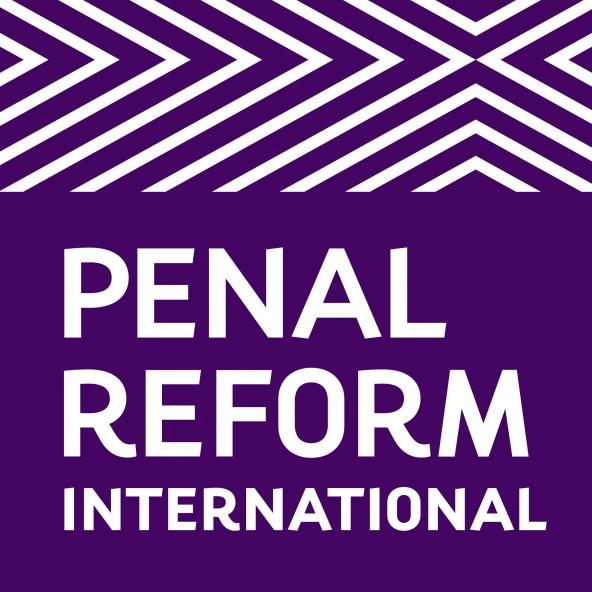
Member(s)
Penal Reform International (PRI)
on 30 April 2020
Penal Reform International (PRI) is an independent international non-governmental organisation that structures its work through a policy programme, regional programmes, and a governance and strategy programme that ensures learning and impact. Registered in The Netherlands (registration no 40025979), PRI operates globally with offices in multiple locations. We work to promote criminal justice systems that uphold […]
United Kingdom
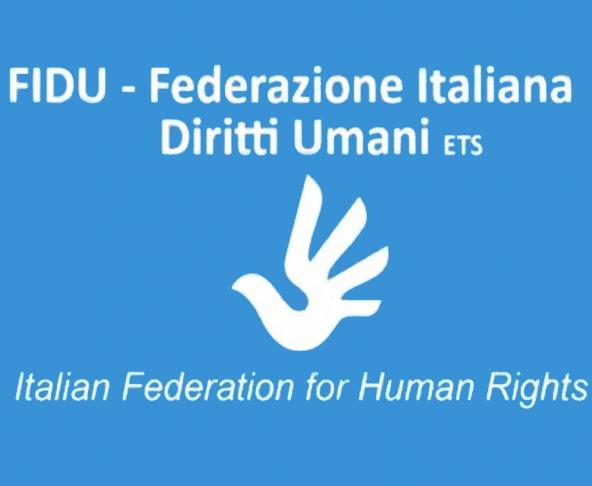
Member(s)
Italian Federation for Human Rights (FIDU)
on 30 April 2020
Active since 1987 as Italian Helsinki Committee, FIDU promotes the protection of human rights as enshrined in the Universal Declaration of Human Rights of 1948, the International Covenant on Civil and Political Rights and the International Covenant on Economic, Social in other relevant international documents. FIDU therefore intends to work to spread the knowledge of […]
Italy

Member(s)
The Human Rights Centre “Viasna”
on 30 April 2020
The Human Rights Centre “Viasna” is a non-governmental human rights organization active since 1996. It is a nation-wide NGO with a central office in Minsk and a dozen local offices across the country. Viasna has about 200 members. In 2003, the Supreme Court groundlessly cancelled the registration of Viasna for its participation in the observation […]
Belarus

Member(s)
Città di Reggio Emilia
on 30 April 2020
For a long time, the city of Reggio Emilia has been proud of its strong vocation for the struggle in defense of Human Rights, which is supported by the commitment of the entire community. An example is that, in order to strengthen its contribution in the struggle against apartheid in South Africa, the city signed […]
Italy

Member(s)
Fédération Syndicale Unitaire (FSU)
on 30 April 2020
The United Trade-Union Federation (FSU) brings together 22 national trade unions in the fields of education, teaching, research, culture, training and social integration. They represent the majority or a large proportion of workers in their professional fields. FSU unites these national trade unions by combining diversity, pluralism and unity. Its characteristic organisational innovation is to […]
France

Member(s)
Conférence Internationale des Barreaux
on 30 April 2020
The International Bar Association Conference (Conférence internationale des barreaux – CIB) was founded by representatives of 24 bar associations of countries that share both the French language and a common judicial tradition. It is now composed of 83 members. The CIB’s objective is to create a cooperation structure between them. It groups together associations that […]
France

Member(s)
Harm Reduction International
on 30 April 2020
Harm Reduction International is a leading NGO dedicated to reducing the negative health, social and legal impacts of drug use and drug policy. We promote the rights of people who use drugs and their communities through research and advocacy to help achieve a world where drug policies and laws contribute to healthier, safer societies. Since […]
United Kingdom
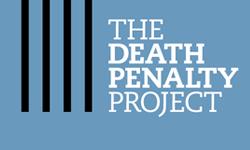
Member(s)
The Death Penalty Project (DPP)
on 30 April 2020
The Death Penalty Project is an international legal action charity, based in London, working to promote and protect the human rights of those facing the death penalty. We provide free legal representation to death row prisoners around the world, with a focus on Commonwealth countries, to highlight miscarriages of justice and breaches of human rights. […]
United Kingdom

Member(s)
German Coalition to Abolish the Death Penalty
on 30 April 2020
The Initiative gegen die Todesstrafe e.V. (German Coalition to Abolish the Death Penalty – GCADP) was founded in 1997 and is a non-profit organization since 2000. Our association is committed to the worldwide abolition of the death penalty. Our work is based on the contents of the Universal Declaration of Human Rights of 1948 as […]
Germany

Member(s)
Human Rights Association
on 2 May 2023
The Human Rights Association (İnsan Hakları Derneği) is a non-governmental, independent, and voluntary body. The association, which was founded in 1986 by 98 human rights defenders, today has 27 branches, 7 representative offices, and ~8,000 members. İHD is the oldest and largest human rights organization in Turkey and its “sole and specific goal is to […]
2023
Turkey
Document(s)
AEDPA Repeal
By Brandon L. Garrett & Kaitlin Phillips, on 1 September 2022
2022
Academic report
Terrorism
United States
More details See the document
Given how pressing the problem has become, and the real interest in reforms to promote access to justice, this article takes a different tack than prior habeas reform work: to restore habeas corpus to its pre-AEDPA and pre-Rehnquist court state, in which a federal court can review claims and reach their merits. The approach would preserve flexibility at the district court level and remove the many layers of procedural complexity that the Supreme Court and then Congress have erected. We believe that deep changes are needed, and in that, we agree with judges and scholars that have for some time proposed such changes in the writ. As we describe, AEDPA was enacted as a culmination of more than two decades of complex Supreme Court law that had already limited access to federal habeas corpus. While AEDPA incorporated some of those procedural rulings, the concern would be that should AEDPA be repealed, even in part, those court-made restrictions could be interpreted to supplant AEDPA restrictions. Clear statutory language will be needed to ensure that the Court does not frustrate Congress, as it has in the past, by supplementing statutory text in order to limit constitutional remedies. We do not mean to suggest that the various proposals set out here are exhaustive. Our goal is to promote careful considerations of alternatives to the present-day set of federal habeas corpus statutes and accompanying judicial interpretation.
- Document type Academic report
- Countries list United States
- Themes list Terrorism

Member(s)
Barreau de Paris
on 30 April 2020
The Paris Bar was founded under the reign of Louis XIV. Nowadays, it represents around 20 000 lawyers, i.e. nearly half of those practicing in France. Its prime objectives are to organise and structure the legal profession, to strengthen training and adapt it to the deep changes occurring in society and to expand the role […]
2020
France

Member(s)
Coalition marocaine contre la peine de mort
on 30 April 2020
The Moroccan Coalition Against the Death Penalty (CMCPM) brings together seven NGOs: -the Moroccan Prison Observatory, -the Moroccan Human Rights Association, -the Moroccan Forum for Truth and Justice, -the Moroccan Organisation for Human Rights, -the Association of Lawyers’ Bars in Morocco, -Amnesty International – Moroccan Section and -the Centre for People’s Rights. Its objectives are […]
Morocco

Member(s)
Kenyan Section of the International Commission of Jurists (ICJ-KENYA)
on 30 April 2020
Mandate and goals : – To develop, strengthen and protect the principles of the rule of law in Kenya. – Develop, maintain and protect the independence of the judiciary and the legal profession in Kenya. – Protect and promote the enjoyment of human rights in Kenya and Africa. Kind of actions : – Legal research […]
Kenya
Document(s)
Ghosts of Executions Past: A Case Study of Executions in South Carolina in the Pre-Furman Era
By John H. Blume, Samuel F. Leibowitz, on 1 September 2022
2022
Academic report
Cruel, Inhuman and Degrading Treatment and Punishment
United States
More details See the document
The protracted and (somewhat) ongoing debate over whether lethal injection—in some or all of its forms—is cruel and unusual punishment under the Eighth Amendment is the newest variation on the question of whether a particular form of capital punishment is inhumane and cruel. The history of capital punishment in the United States over the last two centuries has been punctuated by attempts to find less painful and gruesome ways to kill persons society has condemned to die. Ironically, at least from a historical perspective, some recent executions have seen condemned inmates or their attorneys elect some of the older methods, i.e., electrocution, or offer, as a potentially less painful alternative, the firing squad or death by lethal gas. And some states, including the main subject of this article, have resurrected electrocution and the firing squad because of a claimed inability or difficulty in obtaining execution drugs. In this article, the authors trace the history of execution methods in the pre-modern era of capital punishment (before 1972), primarily in South Carolina, pointing out the often-intractable problems with their implementation process (including specific “botches”), and then address other aspects of executions that have relevance to the current debate about the wisdom and efficacy of retaining the “modern” American death penalty in the twenty-first century.
- Document type Academic report
- Countries list United States
- Themes list Cruel, Inhuman and Degrading Treatment and Punishment

Member(s)
Parliamentarians for Global Action (PGA)
on 30 April 2020
Parliamentarians for Global Action (PGA), a non-profit, non-partisan international network of over 1,200 legislators in approximately 130 elected parliaments around the globe, aims to promote peace, democracy, the rule of law, human rights, gender equality and population issues by informing, convening, and mobilizing parliamentarians to realize these goals. The network of legislators’ programme of work […]
2020
United States
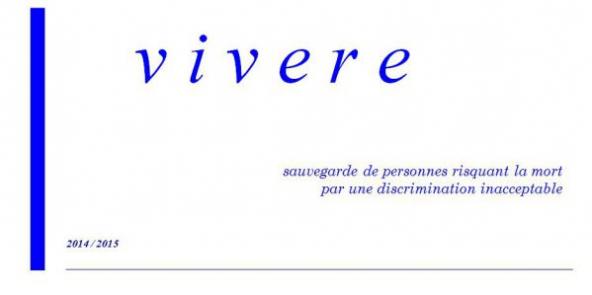
Member(s)
Vivere
on 30 April 2020
Switzerland
Member(s)
Save Anthony
on 30 April 2020
Save Anthony is a charity registered under the 1901 French law. It is designed to promote the story and finance the privately retained legal team of Anthony Mungin, sentenced to death and incarcerated at the Union Correctional Institution in Raiford, Florida (USA) since February 23rd, 1993. Anthony Mungin has always maintained his innocence for the […]
France
Member(s)
Legal Awareness Watch (LAW)
on 30 April 2020
Legal Awareness Watch (LAW) is a nonpartisan, non-profitable NGO registered under law since 1999, holding registration number 1388. Since its creation, LAW has been advocating, and raising awareness in Pakistan on human rights of prisoners in 104 Pakistani prisons i.e. the right to vote, right to dignity, right to life etc. Apart from the promotion […]
Pakistan

Member(s)
Abdorrahman Boroumand Center for the Promotion of Human Rights and Democracy in Iran
on 30 April 2020
Abdorrahman Boroumand Center previously know as Abdorrahman Boroumand Foundation Mandate and goals : Promoting universal human rights in Iran and documenting the violation of the right to life in the Islamic Republic of Iran Kind of actions : Creation of an online memorial to the victims of the violation of the right to life in […]
Iran (Islamic Republic of)

Member(s)
National Lawyers Guild (NLG)
on 30 April 2020
The National Lawyers Guild (NLG) is an association dedicated to the need for basic and progressive change in the structure of the US political and economic system. It seeks to unite the lawyers, law students, legal workers and jailhouse lawyers of America in an organization that shall function as an effective political and social force […]
United States

Member(s)
Avocats Sans Frontières France
on 30 April 2020
The mandate and objectives of Avocats Sans Frontières France are: 1. Defending lawyers and defenders of human rights subject to threats or attacks of any kind because of their exercise professional; 2. Contribute to the effective implementation of human rights, universally recognized for ensuring the acces to any private person to a free and independent […]
France

Member(s)
Project 39A
on 13 September 2022
Project 39A is a criminal justice initiative, based in the National Law University, Delhi – a prestigious public university in New Delhi. Inspired by Article 39-A of the Indian Constitution, Project 39A’s work furthers the intertwined values of equal justice and equal opportunity. Project 39A uses empirical research to re-examine policies on various criminal justice […]
2022
India
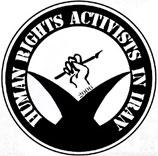
Member(s)
Human Rights Activists in Iran (HRAI)
on 30 April 2020
Human Rights Activists in Iran (also known as HRAI and HRA) is a non-political and non-governmental organization comprised of advocates who defend human rights in Iran. HRAI was founded in 2006 and aims to promote, safeguard and sustain human rights in Iran. The organization keeps the Iranian community and the world informed by monitoring human […]
2020
Iran (Islamic Republic of)
Member(s)
Kurdistan Human Rights Association-Geneva (KMMK-G)
on 30 April 2020
Kurdistan Human Rights Association-Geneva (KMMK-G) is an independent organization, with no political affiliation. KMMK-G was established in 2006 to serve as a bridge between the Kurdish civil society and the United Nations (UN) agencies and International institutions on the one hand, and the Kurdish and Iranian civil society on the other hand. The organization aims […]
Iran (Islamic Republic of)

Member(s)
Serbia Against Capital Punishment (SACP)
on 30 April 2020
Serbia Against Capital Punishment (SACP) was formed in 2012 to work towards universal abolition of the death penalty and to oppose its reintroduction in Serbia or any other country. It also opposes torture, as well as all other inhuman and degrading punishments. SACP maintains a data base of more than 7.000 persons sentenced to death […]
Serbia
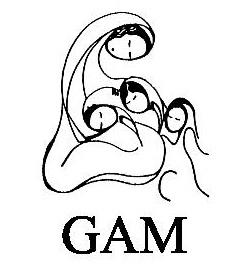
Member(s)
Grupo de Apoyo Mutuo (GAM)
on 30 April 2020
Mandate and goals: Organization of relatives of missing persons illegally detained which works for justice, investigating past cases, opening legal proceedings against the national system and the human rights system. Kind of actions: We work for justice, for the strengthening of the institutions linked to the criminal investigation and against the death penalty. Actions aiming […]
Guatemala
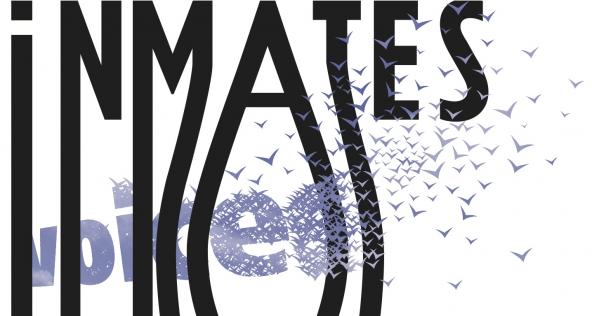
Member(s)
Inmates’Voices
on 30 April 2020
Switzerland
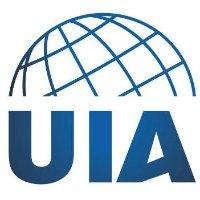
Member(s)
International Association of Lawyers
on 30 April 2020
Established in 1927, and with members in 110 countries, the UIA (International Association of Lawyers) is a global and multi-cultural organization for the legal profession that facilitates professional development, stimulates learning and networking, and promotes the Rule of Law. UIA is open to all the world’s lawyers, both general practitioners and specialists. The UIA’s members […]
France
Member(s)
Center for Constitutional Rights
on 30 April 2020
Center for Constitutional Rights is an American NGO based in New York. The Center for Constitutional Rights is committed to fighting injustice on many fronts, as demonstrated by the breadth of our cases as well as our organizing work. CCR works on a wide range of issues: illegal surveillance and attacks on dissent, Criminal Justice […]
United States

Member(s)
Journey of Hope… From Violence to Healing
on 30 April 2020
“Journey of Hope…from Violence to Healing is an organisation led by murder victim family members joined by death row family members, family members of the executed, the exonerated, and others with stories to tell, that conducts public education speaking tours and addresses alternatives to the death penalty. Every year, the organisation arranges a Journey of […]
United States

Member(s)
Lifespark
on 30 April 2020
lifespark is a Swiss organization and was founded in January 1993. lifespark is a non-profit organization, financed by membership dues and donations. All work for lifespark is done on a voluntary basis. lifespark has a central governing body; it has members from all linguistic regions of Switzerland. As of the end of 2012, the organization […]
Switzerland

Member(s)
Ligue des droits de l’Homme
on 30 April 2020
Founded in 1898 during the Dreyfus affair, the League for Human Right (LDH) has a rich history thanks to a century of activism and attentive monitoring of all major contemporary issues. Originally, its mandate was to defend an innocent man, victim of anti-Semitism and reason of state, but the LDH expanded its actions to include […]
France

Member(s)
International Bar Association’s Human Rights Institute (IBAHRI)
on 14 March 2023
The International Bar Association’s Human Rights Institute (IBAHRI) works with the global legal community to promote and protect human rights and the independence of the legal profession worldwide. The IBAHRI is an autonomous and substantively independent entity of the International Bar Association (IBA), the world’s leading organisation of international legal practitioners, bar associations and law […]
2023
United Kingdom

Member(s)
Palestinian Center for Human Rights
on 30 April 2020
The Palestinian Centre for Human Rights (PCHR) is an independent Palestinian human rights organisation based in Gaza City. It enjoys Consultative Status with the ECOSOC of the United Nations and is an affiliate of the International Commission of Jurists (Geneva), the International Federation for Human Rights (Paris), the Euro-Mediterranean Human Rights Network (Copenhagen) and the […]
2020
State of Palestine
Document(s)
Poster World Day 2006
on 10 October 2006
2006
Campaigning
Trend Towards Abolition
frMore details Download [ pdf - 191 Ko ]
Discrimination, unfair trials, judicial error, the execution of child
offenders and those suffering from mental disabilities all
amount to a failure of justice and provide more compelling rea-
sons to abolish the death penalty. 10 October 2006 is the fourth
World Day Against the Death Penalty. Join the World Coalition
Against the Death Penalty in working for an end to the use of
capital punishment and a globe free of judicial killing.
- Document type Campaigning
- Themes list Trend Towards Abolition
- Available languages Affiche journée mondiale 2006

Member(s)
People of Faith Against the Death Penalty
on 30 April 2020
People of Faith Against the Death Penalty (PFADP) is a nongovernmental organisation whose mission is to educate and mobilise faith communities to act to abolish the death penalty in the United States. Founded in 1994 in North Carolina, PFADP focuses its programs on organising among faith communities in the Southern United States, where most executions […]
2020
United States

Member(s)
Ville de Braine-l’Alleud
on 30 April 2020
The town of Brain-l’Alleud is located in Brabant wallon in the Hain valley, about twenty kilometres from Brussels. It has 37,000 inhabitants. Previously the site of the Battle of Waterloo in 1815, today the town welcomes much more peaceful activities, including a large number of NGOS and in particular an Amnesty International group and the […]
Belgium
Member(s)
Association Mauritanienne des Droits de l’Homme (AMDH)
on 30 April 2020
Mauritania
Member(s)
Kenya Human Rights Commission
on 30 April 2020
Kenya

Member(s)
Witness to Innocence
on 30 April 2020
The mission of Witness to Innocence (WTI) is to unite U.S. exonerated death row survivors and their loved ones to become a powerful force for social justice and transformation. WTI seeks to abolish the death penalty, to reform the U.S. criminal justice system to prevent wrongful convictions, and to secure fair financial compensation and social […]
United States
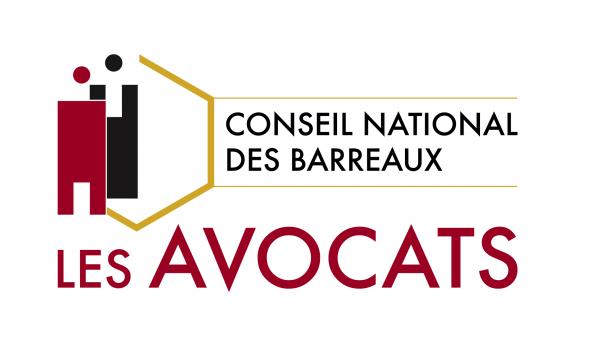
Member(s)
Conseil national des barreaux
on 30 April 2020
France

Member(s)
Cornell Center on Death Penalty Worldwide
on 30 April 2020
A research, training, and advocacy center focused on promoting international human rights law in the application of the death penalty.
United States

Member(s)
Youth Safety Awareness Initiative (Crime Si Poa®)
on 27 March 2024
Youth Safety Awareness Initiative mission is to promote social justice and a crime-free society through education, advocacy and social enterprise, targeting children and young people. Youth Safety Awareness Initiative primarily focus on discouraging at-risk and vulnerable youth from engaging in criminal activities and addressing threats to peace through behavioral and attitudinal change, while promoting the […]
2024
Kenya
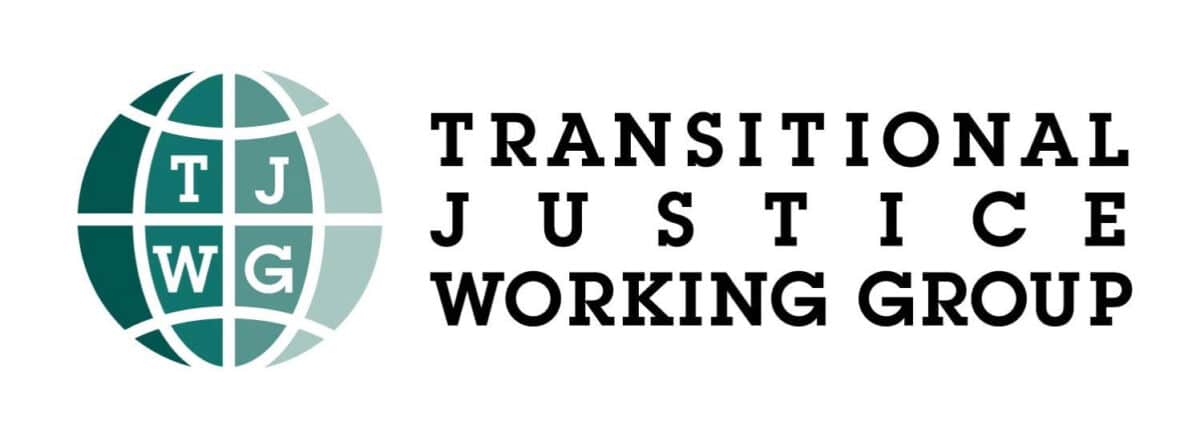
Member(s)
Transitional Justice Working Group (TJWG)
on 15 December 2023
As a human rights documentation NGO, TJWG has published biennial reports on public executions in North Korea based on interviews with North Korean defectors in 2017, 2019 and 2021. TJWG has also been calling for the complete abolition of the death penalty in North and South Korea, which has maintained it in the laws even […]
2023
Republic of Korea

Member(s)
Centre d’Études en Droits Humains et Démocratie (CEDHD)
on 27 March 2024
C.E.D.H.D. provides a forum for collective reflection, exchange, research and training. It has a network of national and international experts who contribute to the implementation of these programmes and activities. The CEDH’s mission is to contribute to the promotion of a human rights culture through training, studies, publications and the creation of forums for debate […]
2024
Morocco

Member(s)
Humanity Diaspo
on 27 March 2024
WOMEN’S HUMANITARIAN AND DEVELOPMENT NGO Humanity Diaspo is a non-profit, humanitarian, development, TechForGood and feminist non-governmental organisation (NGO). Humanity Diaspo is independent of any political, religious or philosophical movement. Humanity Diaspo’s aim, where appropriate in partnership with local entities, is to support people in situations of distress, exile and migration, precariousness and exclusion in all […]
France
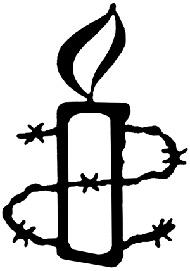
Member(s)
Amnesty International (AI)
on 30 April 2020
Amnesty International (AI) is a worldwide voluntary activist movement working for human rights. It is independent of any government, political ideology, or religious creed, economic interest or religion. It does not support or oppose any government or political system, nor does it support or oppose the views of the victims whose rights it seeks to […]
2020
United Kingdom
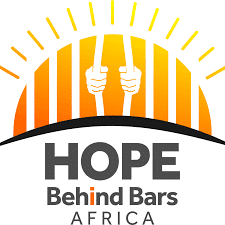
Member(s)
Hope Behind Bars Africa
on 5 September 2023
Hope Behind Bars Africa provides free legal services and direct support to indigent individuals in contact with the justice system while promoting criminal justice reforms through research, evidence-based advocacy, and technology.
2023
Nigeria

Member(s)
Magistrats européens pour la démocratie et les libertés (MEDEL)
on 30 April 2020
European Judges and Public Prosecutors for Democracy and Fundamental Rights (Magistrats européens pour la démocratie et les libertés – MEDEL)) is an association regrouping 23 association of judges and prosecutors coming from 16 European countries. Its activities are centred on debates and studies on the independence of the judiciary and international judicial co-operation, in connection […]
2020
Germany
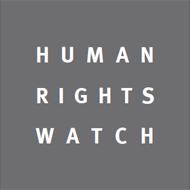
Member(s)
Human Rights Watch
on 30 April 2020
Human Rights Watch is a nonprofit, nongovernmental human rights organization made up of more than 275 staff members around the globe. Its staff consists of human rights professionals including country experts, lawyers, journalists, and academics of diverse backgrounds and nationalities. Human Rights Watch is known for its accurate fact-finding, impartial reporting, effective use of media, […]
France

Member(s)
Ligue Ivoirienne des Droits de l’Homme
on 30 April 2020
The Ligue ivoirienne des droits de l’Homme [Ivory Coast Human Rights League, LIDHO] is politically and religiously independent. Its main aim is to work towards creating a state of law in Ivory Coast. To achieve that objective, it works in particular towards strengthening the legal system and ensuring an independent justice system and fair and […]
Côte d'Ivoire

